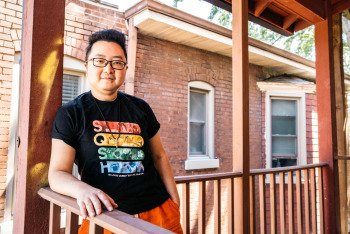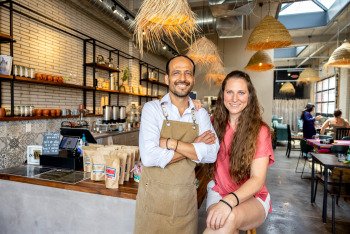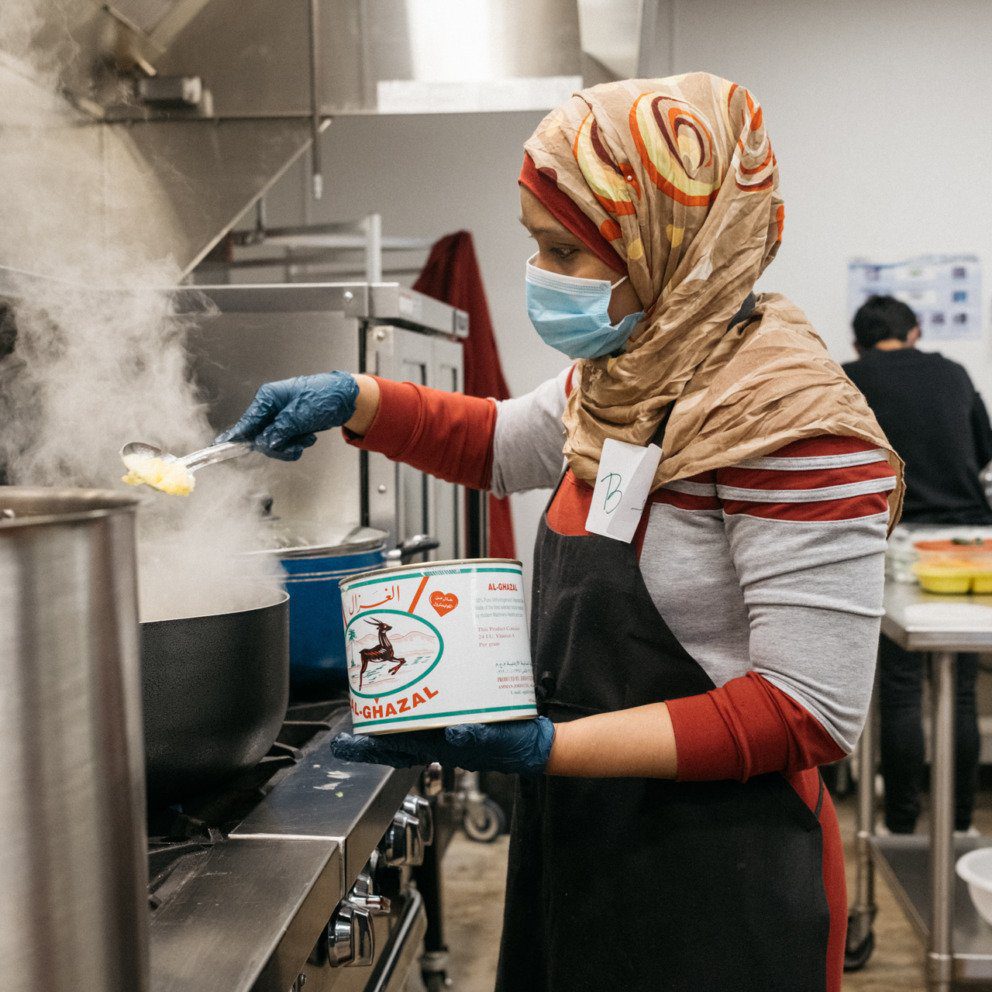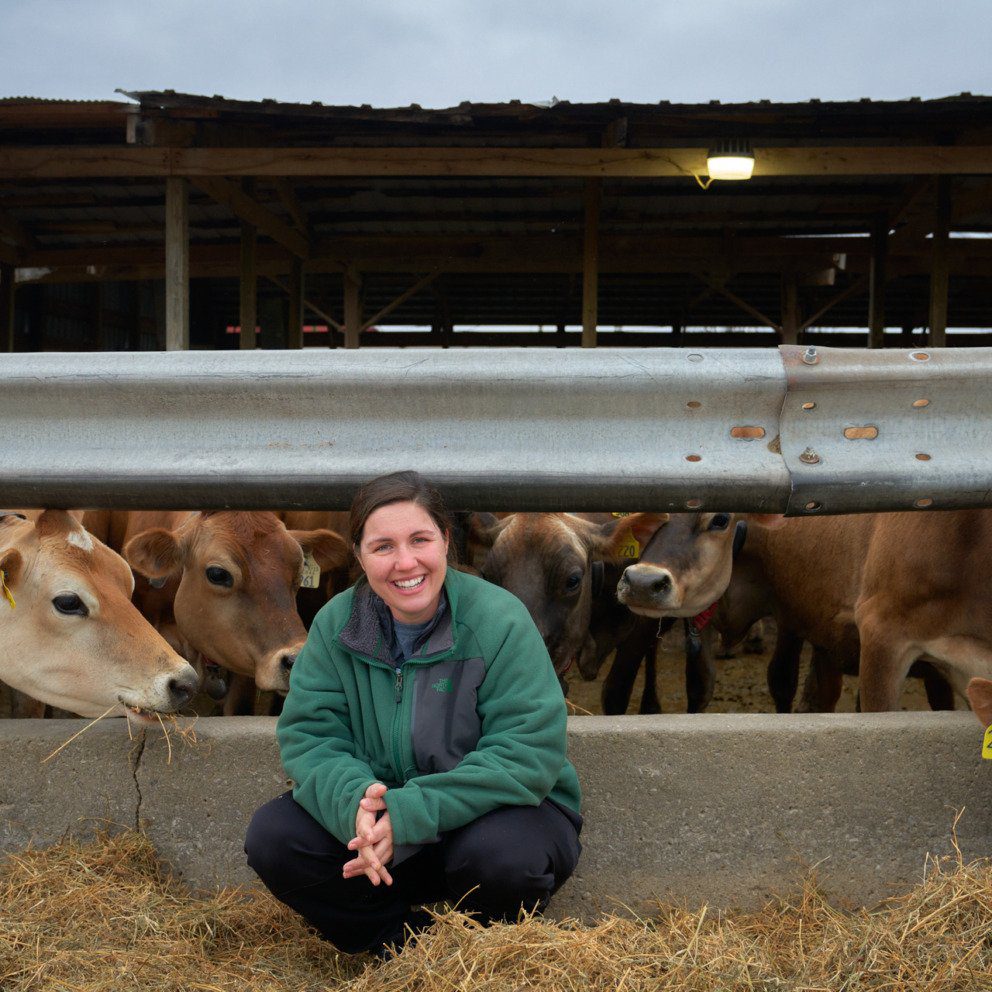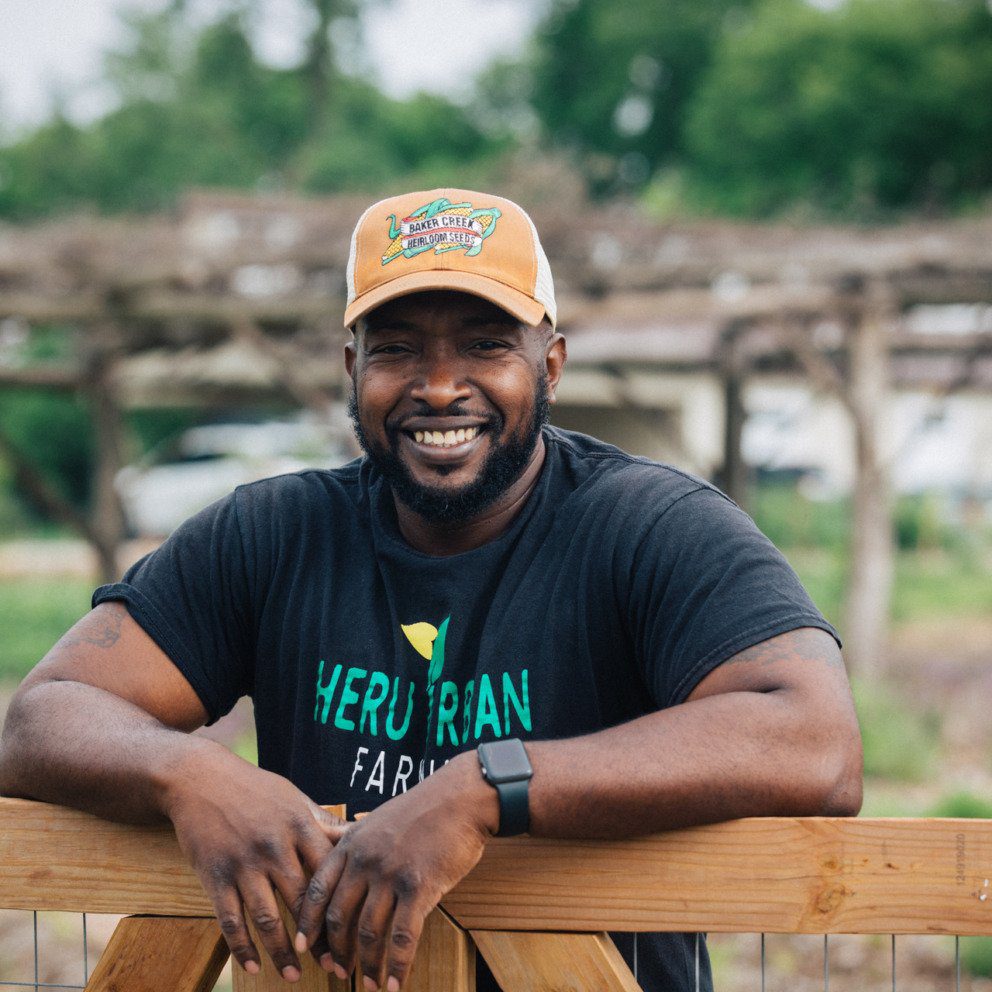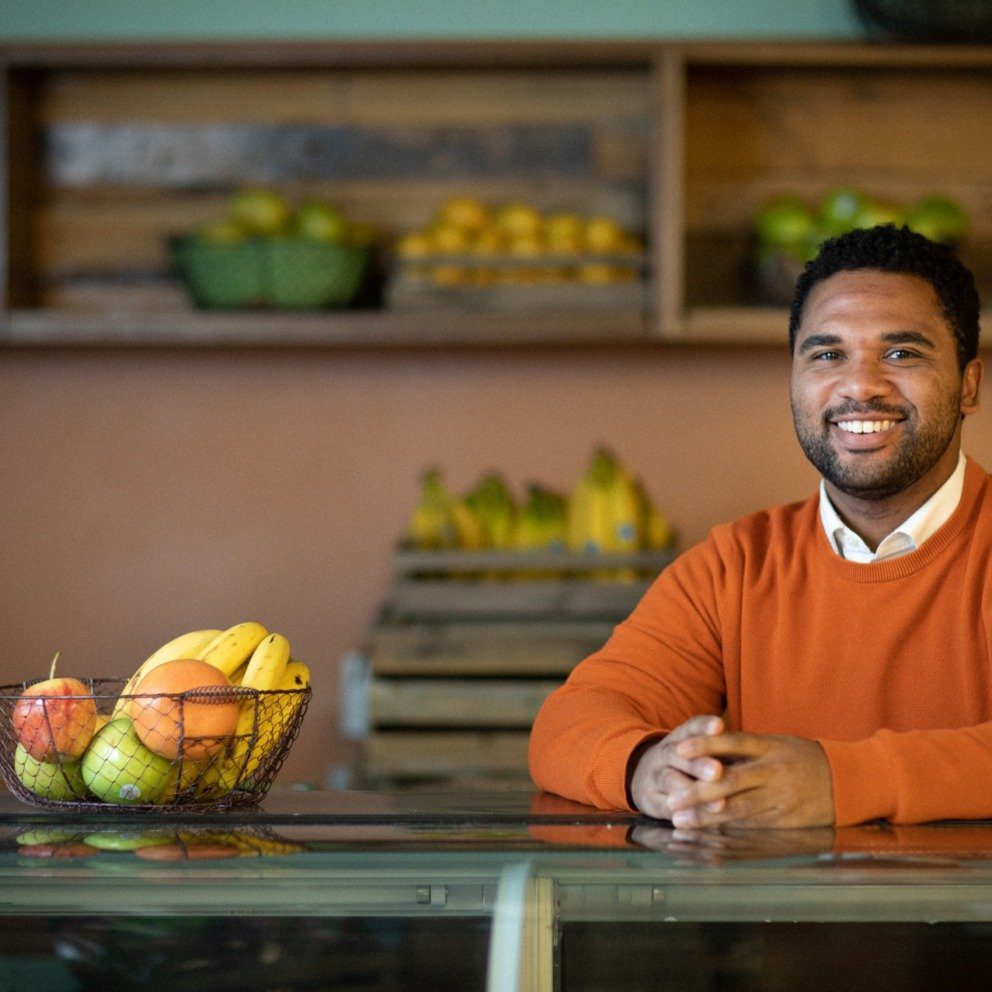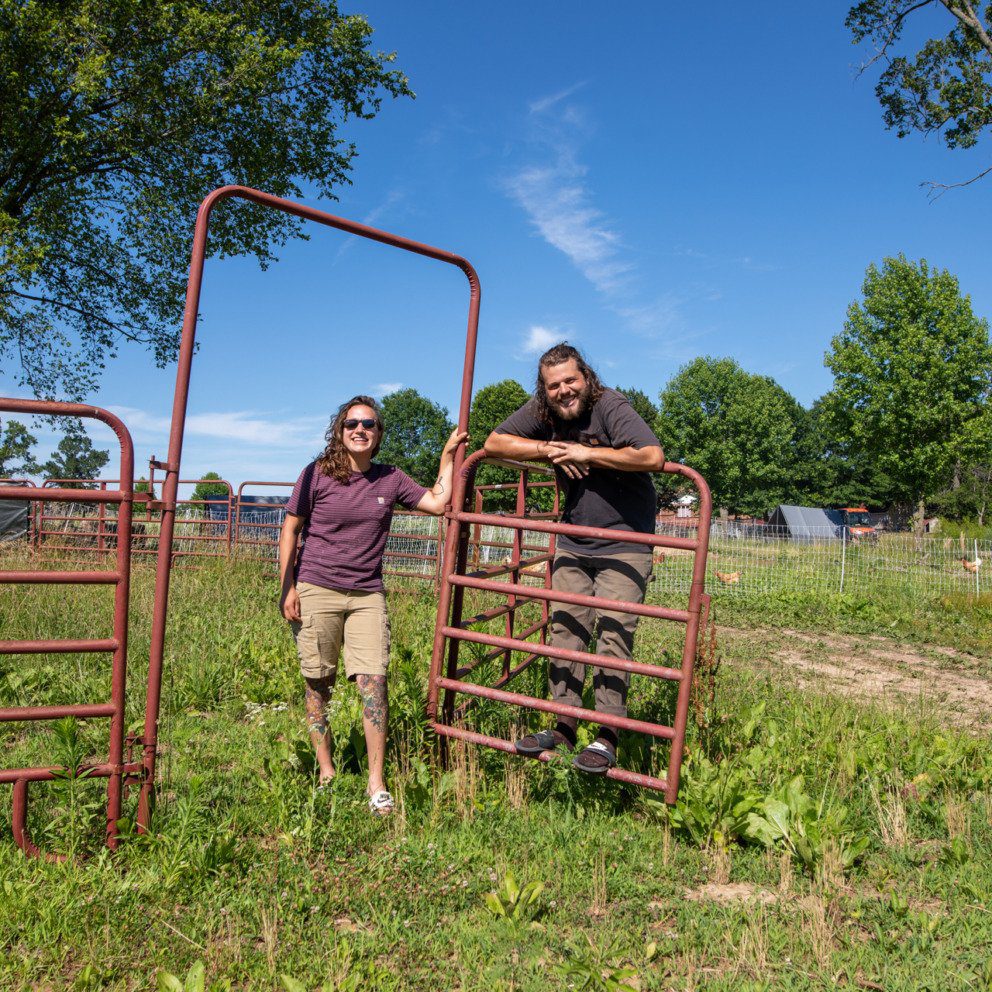More Than A Market
Lacy Cagle leads City Greens Market in the Grove to be a hub for community, education and local produce.
Among all the historic brick buildings in St. Louis’ Forest Park Southeast neighborhood, one stands out from the crowd: the striking green storefront of City Greens Market. Whether you pass by the herb garden on your way in or enter at the front door and see the “free” shelf stocked with produce and goods available for anyone to take, it’s clear that the paint color isn’t the only thing that makes the market different.
“City Greens Market is a neighborhood nonprofit grocery store,” says Lacy Cagle, executive director of the market. “We’re sort of this yearlong, five days a week, farmers market for a lot of local farmers.”
A group of women delightfully dubbed the “Midtown Mamas” came up with the concept for the market in 2008.
“They were part of the Midtown Community Services, they lived in the neighborhood, and they saw the effects of living in a food desert and food apartheid on their family and friends,” Cagle says. “And it was all because they didn’t have easy access to fresh fruits and vegetables without reliable transportation. You had to take the bus, make multiple stops and the markets that were in The Grove at the time had all packaged food, alcohol, cigarettes and stuff.”
The state of the neighborhood at the time was precisely how the U.S. Department of Agriculture describes a food desert: “large proportions of households with low incomes, inadequate access to transportation and a limited number of food retailers providing fresh produce and healthy groceries for affordable prices.”
More specifically, those who reside further than half a mile from a large grocery store or supermarket in an urban area are in a food desert. With that metric, 18 percent of Missourians live in a food desert.
So the mamas sought a solution. They organized a Community Supported Agriculture program with Gateway Greening and received grants to work with local farmers to bring fresh produce to the neighborhood. What started in the basement of the St. Cronin Catholic School building in 2008 progressed in 2013 to its current space on Manchester, and in 2016, received official nonprofit status.
The nonprofit remains firmly focused on making fresh, healthy food available to all.
“I don’t know that the mamas would have said they were trying to go for food sovereignty at the time that they were starting, but that’s really what their vision was,” Cagle says. “It wasn’t just about meeting the needs right now. It was about, ‘how do we actually change the system so that the community actually has the power and control over their food source?’”
While also, of course, making sure it was affordable.
“We have sliding-scale memberships based upon household income,” Cagle says. “So you pay that fee each month or each year and then you just get access to everything at cost. We’re not getting any profit. So we’re working to meet the needs of the community immediately, but we’re also working to make sure that local farmers are able to stay in business.”
City Greens Market collaborates with more than 120 local farmers and vendors — like EarthDance Farms, Heru Urban Farming and Good Life Growing — to offer everything from meat, fruit, veggies, eggs, dairy, jams and jellies and much more for their members.
“Some of the farmers and vendors have a lot more capacity to be selling at a lot of different places versus others,” Cagle says. “So we are really excited to offer a consistent audience for folks to get out there, get known and hopefully be able to grow their own brand, as well.”
Brands like Pure Juice, Hilty’s Bee Yard, Mighty Cricket and Sista’s Pop, just to name a few.
“There are a lot of folks who purchase from us because they really love that we started out in the neighborhood, and they love supporting local small farmers, Black farmers, Black vendors and women-owned businesses,” Cagle says. “That’s all considered a priority for us.”
The market not only takes great care in providing healthy food, but also ensuring no food goes to waste.
“When we have produce that is starting to go bad that we know we won’t sell it anymore, but it’s still totally edible, we make sure that we process that in the correct way and then we create little packages,” Cagle says. “So you might get a bag of different frozen fruits, and we have a smoothie recipe on there. You might get a vacuum-sealed bag for roasted vegetables and recipe for having roasted vegetables on there.”
To even further its commitment to reducing food waste, City Greens Market also offers a composting program in partnership with locally owned commercial organic recycling center, Total Organics Recycling, to divert food waste from landing in landfills while creating nutrient-rich soil.
“I love the challenge of: How do we make sure that we’re growing food at a skill that feeds people, but it’s getting distributed in the way that best meets peoples’ needs, while also caring about the environment,” says Cagle. “Those are really important intersections, and I think that food is a really, really tangible way of understanding some of those sustainability intersections.”
It’s only natural that when all these things intersect, a community develops.
“Community is such a huge part of this,” Cagle says. “It’s being able to know your neighbors. It’s being able to know your farmers and knowing where your food comes from.”
The market helps build that sense of community through events.
“We host ‘meet your farmer’ events, we do cooking demonstrations,” Cagle says. “We try to connect people to other organizations or services so that they’re set up for lifelong health and wellness.”
And it’s this clear sense of community that Cagle believes has helped City Greens Market morph into the market it is today.
“There were so many people who were doing such good work for so long to keep City Greens going,” Cagle says. “Historically, we were a mostly volunteer-run organization — like, for years. It’s pretty amazing. In fact, when I came on as executive director it was like, ‘Wow, it is a miracle that we are still around.’ But it was because we had such support from so many people who really believed in us.”
Join the Story
- Shop the latest goods or sign up for a compost subscription on the City Greens Market website.
- Read the STLMade story and watch the video on how Tyrean “Heru” Lewis is bringing fresh produce to underserved communities.


